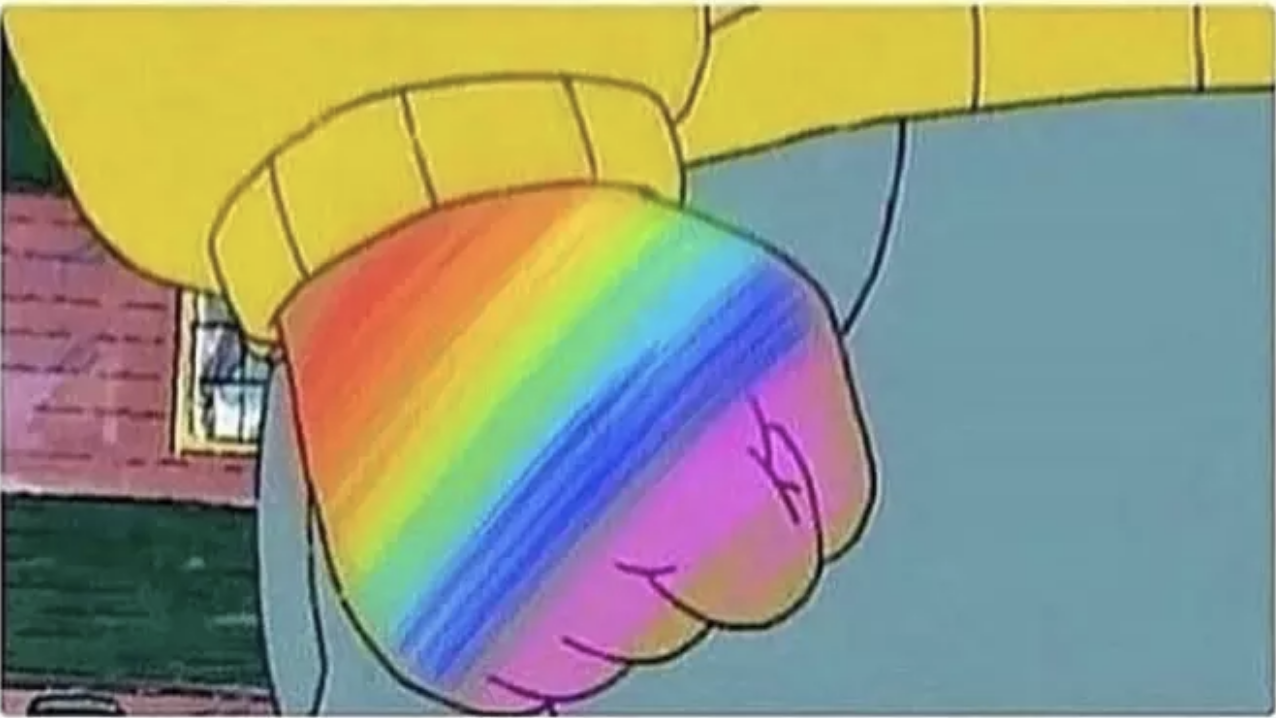Queerer Than Thou: Policing and Dogma in Our Communities
Like many other misfits, I have struggled endlessly to find my tribe. I was one of the only fresh-out-of-the-closet gays in high school, surrounded by a sea of Southern Belles and born again hipsters. Well into college, I found platonic love with mostly straight identified individuals. After moving to Atlanta in 2012, the flood gates opened and unleashed a sea of drag queens, radical faeries, queer activists, dreamers and lovers. Within all this newfound faggotry, I quickly realized that claiming queer was more complicated than coming out as gay.
It irks me to say it, but we’ve all noticed the culture shift and trending hashtags.
Queerness is quickly becoming part of the mainstream conversation.
Multimedia conglomerate, Condé Nast, recently launched their own online queer publication called “them”. The new Roseanne reboot is reported to feature network TV’s first nonbinary character. We are being marketed to on runways, on TVs, and in our clothing stores. According to a study done last year by the J. Walter Thompson Innovation Group, millenials are queer as fuck when compared to previous generations. As the word “queer” becomes more frequently used, commodified, and stripped of meaning, many people have become understandably protective of this identity. For an identity that is so much about living on the margins, how is it suddenly that being queer feels so damn trendy?
With any sort of niche community, there are always gatekeepers—those individuals who feel they speak for all members of said community. Gatekeepers stifle creativity. They create barriers, discourage questions, all while amassing a loyal group of zealots. They are also usually the loudest ones in the room (or chatroom).
Growing up in a Southern Baptist church, I am hyper aware of this behavior. Within my small church community, I often felt ostracized by asking simple questions. If I didn’t exhibit Stepford Wives/shiny-happy-people level exuberance, I was clearly under the influence of something evil and ungodly. I felt like I was constantly under the microscope.
As a modern queer, you are expected to follow a certain set of prescribed rules and expectations. If you step out of line, you are immediately “canceled” or crucified by your online or real-life companions. Healthy discourse is quickly shut down.
I didn’t leave one cult for another.
I do believe discourse is healthy and important. Some call outs are necessary. What I’m talking about is a particularly insidious tendency to shut people down who have differing opinions. Questioning the queerness of others based on physical appearance or simple disagreements.
No one should feel ostracized by a community that is claiming to be radical. Many of us feel not queer enough for the radical or militant queers in our midst. Even if we agree with many of their radical stances but not always their approaches, we’re still not good enough. The radical approach demands 100% purity and lashes out at those who don’t fall in line.
We are all casualties of this trendy mainstreaming of queer identity while simultaneously being roasted on the alter of conservative political leverage. Our identities are constantly being commodified and weaponized, but why are we turning those weapons on each other?
My queerness is not contingent on the clothes that I’m wearing, the style of my hair, the music I listen to, or the bars that I frequent. We ask outsiders not to make assumptions about our gender and sexuality, so why don’t we extend the same courtesy to the people in our own communities? Can we break the cycle of the oppressed becoming the oppressor or are we just like everybody else?
Being comfortable in your own identity is radical. Giving others space to grow and be themselves is radical. Empathy and patience are radical.
People talk about the queer community like it is a tangible object or entity or group of people. The spirit of the queer community itself cannot be defined, owned, or commodified, and the Atlanta queer community proves that. We aren’t one queer community; we are multiple queer communities. We shift, we grow, we make mistakes and argue, but we don’t all prescribe to one definition of what queer can be.
And that’s kind of beautiful, right?
Stay tuned for my next piece: “How Str8 Thou Art”
Archive
- February 2025
- November 2024
- October 2024
- September 2024
- August 2024
- July 2024
- June 2024
- May 2024
- April 2024
- October 2023
- July 2023
- June 2023
- May 2023
- April 2023
- March 2023
- February 2023
- June 2022
- April 2022
- March 2022
- January 2022
- December 2021
- October 2021
- September 2021
- August 2021
- July 2021
- June 2021
- May 2021
- April 2021
- March 2021
- February 2021
- January 2021
- December 2020
- October 2020
- September 2020
- August 2020
- July 2020
- June 2020
- May 2020
- April 2020
- March 2020
- February 2020
- January 2020
- December 2019
- November 2019
- October 2019
- September 2019
- August 2019
- July 2019
- June 2019
- May 2019
- April 2019
- March 2019
- February 2019
- January 2019
- December 2018
- November 2018
- October 2018
- September 2018
- August 2018
- July 2018
- June 2018
- May 2018
- April 2018
- March 2018
- February 2018
- January 2018
- December 2017
- November 2017
- October 2017
- September 2017
- August 2017
- July 2017
- June 2017
- May 2017
- April 2017
- March 2017
- February 2017
- January 2017
- December 2015
- November 2015
- October 2015
- September 2015
- August 2015
- July 2015
- June 2015
- May 2015
- April 2015









